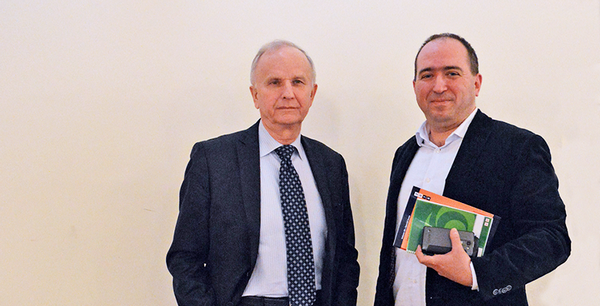The model to be emulated is not the America of Trump but rather the China of Xi Jinping and the France of Macron: let us find out why

Grzegorz Kołodko professor of the Polish Kozminiski University, founder and Director of TIGER (Transformation, Integration and Globalization Economic Research) was interviewed by Miklós Kozma on the occasion of the Corvinus workshop, one of the events celebrating the 90th birthday of Professor János Kornai.
He started by saying how inspiring Professor Kornai’s writings had been for him in the 70s
and that they served as a basis for creating an alternative model to Kornai’s shortage economy, “shortageflation”. He associated the interpretation of this concept with Chinese economic practices. To his mind China is the only Socialist economy that operates under a semi-hard budget constraint and as such is not plagued by the phenomenon of shortage that had led to the demise of Socialism in Hungary. In China, anyone can buy a Ferrari if they have the necessary means as opposed to our former Socialist economies in which it often happened that we could not get certain goods in exchange for our money. Thus, the Chinese system cannot be considered either as classical socialism or capitalism in the conventional sense of the word. Professor Kołodko coined a word to describe it: Chinism.
China owes its rapid economic growth of the previous decades
to the fact, among others, that it did not move toward political democracy which by its nature would have supported growth to a lesser degree. “Nonetheless, I regard democracy an asset in itself even if it not as efficient as the politically centralized Chinese economic model” said Professor Kołodko. China does not allow shortage to occur in economy as this would mean the end of the system. At the same time, inequalities in China are currently greater than in the stronghold of capitalism, the United States.
I asked him whether the Chinese model could be implemented in other countries.
It could indeed be a model for certain countries like Vietnam, Laos, Cambodia, Cuba and for other poorer developing countries such as Ethiopia, Tanzania and Burkina Faso. In their case the Chinese solution may be the way out from poverty. In traditional economies, however successful they are deemed, growth took place in an exclusive fashion, and as a result, inequalities have not decreased while poverty has subsisted. Chinism solved the problem, thereby offering an attractive alternative to less wealthy developing countries.
This led to another question: Can Hungary learn from the Chinese model?
It cannot serve as a model to follow, since we Europeans respect democracy as a value in itself, unlike the Chinese. We could, however, learn how to exploit synergies. In China the economy is not subjected to parliamentary elections taking place every four years. Long-term development ideas prevail. That is how they managed to extend the expressways from 650 km in 1989 to a network of more than 60 thousand kilometres in our days. One of the major challenges they are currently facing are the catastrophic effects of pollution on the environment. In fact, they are working on long-term solutions to address them. The Professor thinks that one of the lessons learned is that whereas we view democracy as a value, the fact that the democratic majority is often wrong or at least prefers short-term solutions does not help overcome economic difficulties. Professor Kołodko suggests that enlightened authoritarian systems, among them the United Arab Emirates and China, perform much better economically. It can be said to China’s credit that although it runs an authoritarian system, it is definitely a meritocracy with competent leaders taking decisions following technocratic logic.
Could the Chinese model be used to help address the present crisis of Western democracies?
was my last question. The professor immediately understood that I was referring to the crisis of Neoliberalism and mentioned a few examples. The America of Trump, Brexiting England, Germany with a stronger AfD, the French Marine Le Pen, the Dutch Wilders and the Turkey of Erdogan all raise questions for the followers of Neoliberalism. He instantly added that recent Hungarian and Polish trends fitted well in this sequence, too. Kołodko believes that the crisis of Neoliberalism is due to “a minority getting rich at the expense of the majority”, with the ensuing and perpetuated inequalities resulting in losing confidence in political leaders. He has described the phenomenon of the emerging political forces as “new Nationalism” and does not find it a good response to the problems that undoubtedly exist. He is convinced that globalisation is irreversible and therefore there is no scope for nationalism and xenophobia in progressive thinking. He has called his own concept “New Pragmatism” that aims to create a three-fold balance: economic, social and environmental. He uses an interdisciplinary approach that can be applied differently in each context. Besides present-day China, he also sees France under Macron to be adopting this approach. Finally, Kołodko trusts that he will be able to convince the new Polish Prime Minister of the relevance of this ideology-free attitude that places economic prosperity in a wider, more result-oriented perspective than before.
Miklós Kozma
Department of Business Studies
